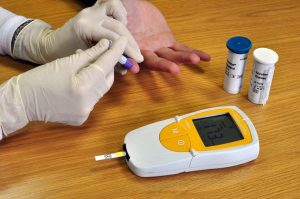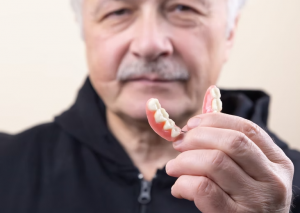Long-term physical, mental, and social health effects of COVID-19
5 min read

The impacts of covid-19, rather a comprehensive study to offer professionals with certain substantial data and information to work on it as a part of their research. The long-term physical, mental, and social health effects of the pandemic are among the major concerns for researchers nowadays. However, the blog will try to cover core impacts like increasing cases of depression in patients seen post covid, as well as specific long-term impacts that can be the most probable outcomes of a specific study or ongoing research.
The pandemic, which has not ended yet, has been classified as a global concern. The deaths caused due to covid-19 globally as per the last count was 6.37M, along with the overall cases that count to 562M. At the same time, the majority of cases after recovery suffered from some other health concerns. Knowing that such health concerns may have long-term impacts has offered a compelling reason for conducting further research.
A paper published in the journal, The Lancet Public Health, shows that patients who did not attend hospitalized care are likely to suffer depressive symptoms for 16 months. However, the patients who got hospitalized for more than a week have shown higher rates of anxiety and depression. Have you experienced yourself being surrounded by feelings of anxiety and depression?
If this fact was sufficient to grab the seriousness of the readers, let us discuss the fundamental point of concern associated with the issue. The definition as developed by the World Health organization for the post-COVID condition has been considered while conducting this study.
Long-term physical, mental, and social health effects
Physical health effects of COVID-19

Apparently, the impact of SARS-CoV-2 can be seen on the various organs of the human body like the heart, kidney, nervous systems, lungs, liver, etc. Such impact on the critical organ even mandated clinical care in some patients weeks after the successful recovery from the covid virus. To cite an example, the study conducted by Neurologists has faced symptoms of brain fog, headaches, fatigue, and dizziness. Along with the cases of neurological problems, the symptoms associated with fatigue, heart problems, kidney failure, and lungs issues are given below:
Fatigue & shortness of breath: The patients who did not receive institutionalized care from the beginning, however, recovered from the COVID but are prone to permanent lung problems that include a certain level of consistent mild infection and shortness of breath. Such symptoms can be seen as a part of exertion the patient feels after significantly less amount of work.
Heart problems: Inflammation of heart muscle, rapid heartbeat, short breaths, and palpitations are some of the most common symptoms that have been witnessed in the patients week after the recovery. These symptoms were also seen in patients with no medical or heart-related disease history before covid-19.
Kidney damage: The risk of dialysis and significant concerns related to the normal functioning of the kidneys are frequently seen in patients with Covid-19 history.
Mental health impacts

Post-traumatic stress is the most typical symptom that is shown by patients suffering from any sort of illness. In the case of covid-19 infection, the amount of mental trauma that was faced by patients is beyond our imagination. Still, in terms of post covid impacts on mental health increased substance use, depression, and chronic pain are commonly seen in many cases. The increased cases of insomnia, i.e., sleep disorder and long-term anxiety, are also among the worsening psychiatric symptoms that have changed the way we look at the aftereffects of the covid-19, and that is not going to get over any time soon. Considerable research and surveys are regularly conducted by scientists as well as prominent institutions that point out to be depressing in terms of the actual recovery rates.
Experts also suggested that there has been a rise in PICS cases, i.e., Post-intensive Care Syndrome, in the patients admitted to the Intensive care units. The strangeness of the surroundings, the fear of death in front of patients, and intensive medications stand as the primary reasons for the PTSD that is seen in various patients.
Social impacts of COVID-19

‘Health for all,’ among the core concerns that were raised by the Alma Ata declaration, has once again raised the standards for the institutional and emergency health infrastructure of modern-day society. The inequity visible in the health care sector can be counted as a significant vulnerability and comes out to be a major issue for policymakers. The unequal distribution of money, resources, and power supported by the ballooning debt burden on the states is also a point of concern that points toward the inefficiency of the present structure.
Apart from that, the post-covid impact on the women’s workforce has witnessed a substantial change in their position. The UN Women theme for International Women’s Day, “Women in leadership: Achieving an equal future in a COVID-19 world,” has shown some substantial facts regarding the increasing pressure of work on women, increased cases of domestic violence during the lockdown, and declining women workforce in specific job profiles is unimpressive in order to explain the current social scenario.
At the same time, the social response to the Covid-19 rules and norms during lockdown can be disturbing when seen from a bigger perspective. The cases of resistive action by the entire community towards the medication, as seen in many places globally, present us with a major challenge as we claim to be a developed and modernized civilization.
Way forward:
What we have learned from this entire pandemic scenario must be considered a top priority instead of the facts of what it caused to us. However, the self-care practices that were helpful in lessening the post-covid impacts are the most promising thing that can be seen in society. Evidently, the change is not limited, but it extends to the socializing norms and gym routines of an individual. To wind up things, there is no better alternative than a simple yet exciting schedule that offers you thirty minutes of physical activities per day and can offer satisfying results in the long run. At the same time, mental health care and social support can be decisive if we as a society want to recover from the long-term impacts caused by Covid-19.
Author bio
Professional writer and blogger associated with online platforms like Assignments help lite and dedicatedly cover students’ concerns and issues regarding the modern academic curriculum as well as assignment writing segment. A considerable number of blogs written by him on multiple online platforms are focused on informative writings and subjective content related to multiple contemporary disciplines.





